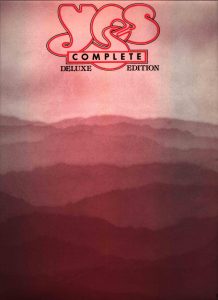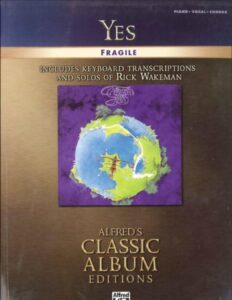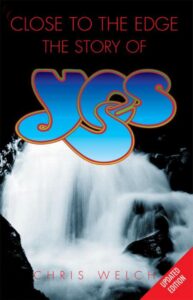Table of Contents
Come join us now, and enjoy playing your beloved music and browse through great scores of every level and styles!
Can’t find the songbook you’re looking for? Please, email us at: sheetmusiclibrarypdf@gmail.com We’d like to help you!
Yes: The Progressive Rock Pioneers

Best Sheet Music download from our Library.
Yes is one of the most iconic and influential bands in progressive rock, known for their complex compositions, virtuosic musicianship, and elaborate concept albums. Here’s everything you need to know about them:
- Formed: 1968 (London, England)
- Key Members (Classic Lineup):
- Jon Anderson (vocals) – Ethereal, high-pitched voice
- Steve Howe (guitar) – Eclectic, virtuosic playing
- Chris Squire (bass) – Pioneering melodic bass lines
- Rick Wakeman (keyboards) – Classical-influenced synth & piano wizardry
- Bill Bruford (drums, later replaced by Alan White) – Jazz-inflected precision
Musical Style & Innovations

Please, subscribe to our Sheet Music Library.
If you are already a subscriber, please, check our NEW SCORES’ page every month for new sheet music. THANK YOU!
✔ Epic song structures (10+ minute tracks, multi-part suites)
✔ Complex time signatures (e.g., “Heart of the Sunrise” in 5/4, 7/8, etc.)
✔ Fusion of rock, classical, jazz, and folk
✔ Fantastical lyrics (spirituality, cosmic themes, mythology)
✔ Layered harmonies & counterpoint melodies
Essential Albums
- The Yes Album (1971) – Breakthrough record with “Starship Trooper” and “Yours Is No Disgrace.”
- Fragile (1971) – Introduced Rick Wakeman, featuring “Roundabout” (their biggest hit) and “Heart of the Sunrise.”
- Close to the Edge (1972) – Often called their masterpiece (title track is 18+ mins of prog perfection).
- Tales from Topographic Oceans (1973) – A polarizing double-LP with four side-long epics.
- Relayer (1974) – More experimental, with jazz-fusion influences (“Gates of Delirium”).

Key Tracks for New Listeners
- “Roundabout” (Fragile) – The quintessential Yes song.
- “Close to the Edge” (22-minute epic, peak prog).
- “And You and I” (Beautiful, folk-prog ballad).
- “Owner of a Lonely Heart” (1983, their pop-rock hit—very different but catchy).
Legacy & Influence
- Inspired generations of prog bands (Dream Theater, Porcupine Tree, Rush).
- Wakeman’s Mellotron/Moog work shaped synth-driven prog.
- Yes was inducted into the Rock & Roll Hall of Fame (2017).
Did You Know?
- Their album artwork (by Roger Dean) is legendary—floating islands, fantasy landscapes.
- They went through many lineup changes (Anderson left/rejoined multiple times).
- “Roundabout” got a resurgence thanks to JoJo’s Bizarre Adventure and memes.
Browse in the Library:
Or browse in the categories menus & download the Library Catalog PDF:
Essential Yes Live Albums
Yes was legendary in concert, often expanding their studio tracks into even more intricate, improvisational journeys. Here are some must-hear live recordings and performances from their peak eras:
- “Yessongs” (1973)
- Recorded during the Close to the Edge Tour (1972-73).
- Features the classic lineup (Anderson, Howe, Squire, Wakeman, Bruford).
- Highlights:
- A 22-minute “Close to the Edge” with mind-blowing solos.
- “Perpetual Change” (with a drum duel between Bruford and Alan White).
- “Starship Trooper” (extended, hypnotic finale).
- “Keys to Ascension” (1996-97)
- Reunion of the Anderson/Howe/Squire/Wakeman/White lineup.
- Mixed new studio tracks with live reworkings of classics.
- Standout performances:
- “Awaken” (transcendent, 20-minute version).
- “The Revealing Science of God” (from Tales from Topographic Oceans).
- “Live at Montreux 2003” (2007)
- Later-era show, but Rick Wakeman’s keyboard work is phenomenal.
- Killer versions of “Siberian Khatru” and “And You and I.”
Legendary Bootlegs & Unofficial Gems
- “Live at the Rainbow 1972” – Arguably their best-sounding bootleg, capturing them at their technical peak.
- “Union Live” (1991) – Rare footage of the “Union Tour” (8 members, including both Wakeman and Tony Kaye on keys).
- “Songs from Tsongas” (2004 DVD) – Emotional reunion show with Jon Anderson in top form.
Yes Live at Montreux [2003]
Yes – Heart Of The Sunrise (Live at Montreux Jazz Festival 2003)
What is Prog Rock or Progressive Rock?
Progressive rock (prog rock) is a genre of rock music that emerged in the late 1960s and peaked in the 1970s, characterized by its musical complexity, ambitious compositions, and fusion of diverse influences. It pushes beyond traditional rock & roll structures, embracing experimentation and virtuosity.
Key Characteristics of Prog Rock
- Extended Song Structures
- Songs often exceed 10+ minutes, with multi-part suites (e.g., Yes’ “Close to the Edge”, Genesis’ “Supper’s Ready”).
- Unconventional time signature changes (e.g., 7/8, 5/4, 13/8).
- Technical Virtuosity
- Emphasis on instrumental proficiency (e.g., Rick Wakeman’s keyboard solos, Steve Howe’s guitar work).
- Complex harmonies, counterpoint, and polyrhythms.
- Eclectic Influences
- Blends classical, jazz, folk, psychedelia, and avant-garde music.
- Use of orchestral instruments (Mellotron, synthesizers, flute, etc.).
- Conceptual & Lyrical Depth
- Concept albums with unifying themes (e.g., The Dark Side of the Moon, The Lamb Lies Down on Broadway).
- Lyrics explore fantasy, sci-fi, philosophy, and spirituality (unlike typical love/rock themes).
- Studio Experimentation & Production
- Layered soundscapes, tape effects, and innovative recording techniques.
- Albums treated as artistic statements (not just collections of singles).
Subgenres & Offshoots
- Symphonic Prog (Yes, Genesis, Emerson Lake & Palmer) – Orchestral, grand-scale compositions.
- Canterbury Scene (Soft Machine, Caravan) – Jazzier, more whimsical.
- Prog Metal (Dream Theater, Tool) – Heavy riffs + prog complexity.
- Neo-Prog (Marillion, Porcupine Tree) – 1980s revival with modern production.
- Krautrock (Can, Tangerine Dream) – German experimental/electronic prog.
Pioneering Prog Bands
- King Crimson (In the Court of the Crimson King) – Dark, dissonant, groundbreaking.
- Pink Floyd (Wish You Were Here) – Psychedelic + conceptual depth.
- Rush (2112) – Prog meets hard rock.
- Jethro Tull (Thick as a Brick) – Folk-infused prog satire.
- Van der Graaf Generator – Intense, avant-garde prog.
Prog vs. Other Rock Genres
- Prog ≠ Classic Rock (more structured, verse-chorus simplicity).
- Prog ≠ Psychedelic Rock (less jam-based, more composed).
- Prog ≠ Art Rock (more accessible, e.g., David Bowie, Roxy Music).
Legacy & Criticism
Influence: Shaped metal, post-rock, electronic, and math rock.
Criticisms: Sometimes called “pretentious” for its ambition.
